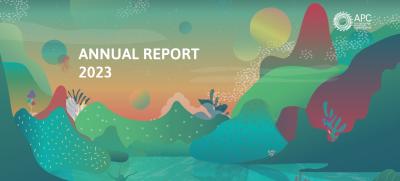
The African School on Internet Governance (AfriSIG) is an annual five-day residential course, run by the Association for Progressive Communications in partnership with and with the support of various organisations. Its goal is to develop a pipeline of leading Africans from diverse sectors, backgrounds and ages with the skills to participate in local and international internet governance structures, and shape the future of the internet landscape for Africa's development.
Drawing faculty from leading African and international experts and role-players in the internet governance ecosystem, the School provides a cutting-edge and African-centred curriculum, exposure to and hands-on experience in participating in internet governance mechanisms, as well as provide ongoing mentorship to our students. Alumni are also plugged into a rich network of policy-makers, regulators and rights activists and experts invested in realising an open and secure internet that can be used to claim and secure our rights, develop our economies and improve our lives.
AfriSIG also responds to the challenge of inadequate participation by African and women stakeholders in the internet governance sphere, building knowledge across stakeholder groups and Africa's sub-regions by fostering dialogue towards mainstreaming African and women’s perspectives to global internet governance.
The specific objectives of AfriSIG are to:
- Strengthen existing capacity of a diverse range of stakeholders in the field of IG in Africa, across all sectors, with a specific emphasis on mainstreaming women’s rights, sexual rights and youth.
- Provide a safe and accommodating environment for new entrants to the field, particularly non-traditional actors from the women’s and sexual rights sectors, to increase their knowledge on IG.
- Bring together people from government, civil society, business and other stakeholder groups to interact and build common ground around a public interest-oriented approach to IG.
- Promote intergenerational, cross-sector and cross-issue engagement and collaboration in the spirit of multistakeholder participation as articulated in the African Declaration on Internet Rights and Freedoms.
- Foster critical debate in a multistakeholder forum on IG issues from an African, Southern and gender perspective.
- Provide opportunities to identify and develop African positions on current issues in internet policy and governance.
- Give participants hands-on experience in IG processes through a practicum that involves role playing a current topic in multistakeholder negotiations, and by co-locating AfriSIG with a significant IG event in which they can participate immediately following the School.
- Strengthen the capacity of actors in the African IG field to integrate gender perspectives.
- Increase the participation and influence of women’s rights and sexual rights stakeholders in IG processes and outcomes in Africa.
- Encourage local to global learning and application of skills and expertise.
Previous AfriSIGs:
To date, there have been 11 Schools:
- The first was held in Durban, South Africa, on 10-12 July 2013.
- The second was held in Bel Ombre, Mauritius on 21-25 November 2014.
- The third was held in Addis Ababa, Ethiopia, on 1-5 September 2015.
- The fourth was held in Durban, South Africa, on 11-15 October 2016.
- The fifth was held in Sharm El Sheikh, Egypt, on 28 November-2 December 2017.
- The sixth was held in Zanzibar, Tanzania, on 11-16 October 2018.
- The seventh was held in N'Djamena, Chad, on 4-9 September 2019.
- The eighth was held online on 23 November 2020.
- The ninth was held online on 4 October 2021.
- The 10th was held in Lilongwe, Malawi, on 16-18 July 2022.
- The 11th was held in Abuja, Nigeria, on 13-18 September 2023.
Partners
The partners associated with this project can be placed into the following five categories:
- Governments
- Intergovernmental agencies
- Civil society
- Private sector
- Technical community
For more information on the initiative, photos and materials, please visit http://afrisig.org/







